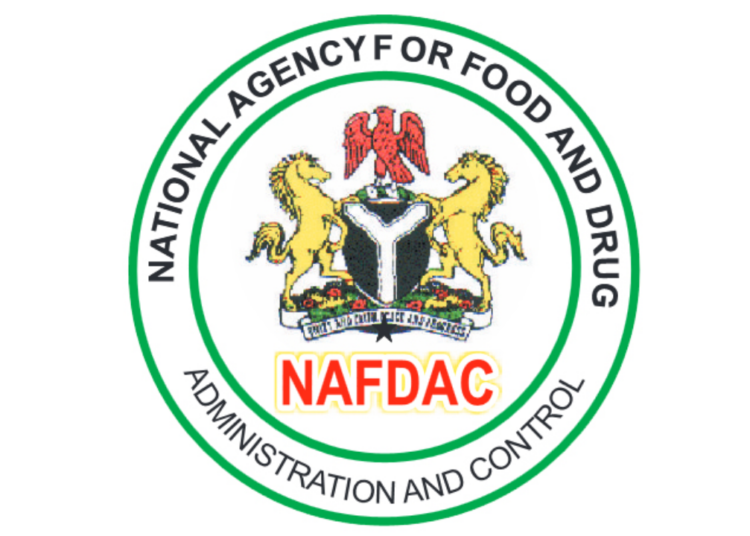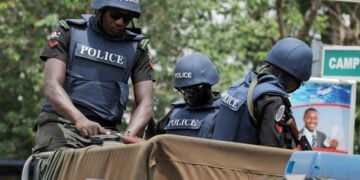Recently, the Director General of the National Agency for Food and Drugs Administration Control (NAFDAC), Professor Mojisola Adeyeye, raised the alarm over alleged threats to her life by people suspected to be cartels in the fake drug business. The DG also called for increased protection for herself and her staff, who have faced various threats including kidnappings and physical attacks.
The death threat may not be unconnected to the agency’s recent alarming discovery and seizure of 50 truckloads of counterfeit drugs from a market in Onitsha, Anambra State.
The discovery was made amid the agency’s ongoing crackdown on fake and substandard drugs.
Similarly, last month, NAFDAC confiscated 87 truckloads of banned, expired, and substandard medicinal products, including USAID and UNFPA donated antiretroviral drugs, male and female condoms, and other compromised medical supplies.
The agency’s raid of the country’s three major open drug markets: Ariaria and Eziukwu Markets in Aba, Abia State, Idumota Drug Market in Lagos and the Bridge Head Market in Onitsha, Anambra State led to the discovery of N1 trillion of fake and expired drugs including, diverted and expired USAID and UNFPA medical supplies, antiretroviral drugs, and condoms intended to support Nigeria’s HIV/AIDS response. These products were either improperly stored or resold for profit, compromising, in the process, the global fight against HIV/AIDS.
More alarming was the discovery of drugs requiring cold chain storage but were found stacked in toilets, under staircases, and on rooftops at high temperatures, causing them to degrade into less effective and toxic substances.
Despite government’s efforts, the menace of fake drugs in Nigeria continues to rise. Reportedly, large number of Nigerians die annually while the trend continues unabated.
Fake drugs or substandard medical products, are counterfeit medications either produced at below standard quality or sold to people as authentic and effective pharmaceutical brands. The dangers of fake/ counterfeit drugs cannot be overemphasised.
These drugs that have been maginalised to satisfy some pecuniary interest pose a significant threat to public health and security. In effect, there are abounding cases of treatment failures, drug resistance, and the consequent undermining of public trust in healthcare systems, potentially leading to disease outbreaks and, in most cases, avoidable fatalities.
According to a recent study by the United Nations’ Office on Drugs and Crime, up to 500,000 people die annually from counterfeit drugs in sub-Saharan Africa. The same report shows that as many as 267,000 deaths each year from substandard malaria drugs and up to 169,000 deaths each year from fake antibiotics used to treat pneumonia in children. Between $12 million and $44.7 million is spent each year treating people who have used counterfeit or substandard malaria drugs.
We recall that Prof Dora Akunyili, a former NAFDAC chief, faced similar threats from drug cartels and corrupt individuals who benefited from the counterfeit drug trade. In 2003, Akunyili narrowly escaped assassination when gunmen fired bullets at her convoy on her way to Anambra State in South east Nigeria. Despite multiple assassination attempts, she remained resolute in her mission, demonstrating immense bravery and integrity.
The risks faced by NAFDAC officials in combating counterfeit drugs require urgent and increased attention from security agencies. The urgency the situation demands is, in our view, immeasurable if the agency and its staff would be protected and supported in the risks they take in service of the nation.
Adeyeye, in her appeal for enhanced security cover, claims that she has only two police escorts both in Abuja and Lagos. For somebody holding such a sensitive position coupled with the fact that drug cartels are known for their brutal act of violence, the government should not dismiss the alleged threat to life or treat it with levity. We urge the authorities to direct an immediate deployment of more security personnel around the NAFDAC DG and her staff.
The agency under Adeyeye needs to be commended for the breakthroughs it has recorded in the war against fake drugs and their distributors across the country but more needs to be done on the side of government to protect the lives of those at the forefront of the war.
In view of the harmful effects of fake medications on lives of innocent Nigerians, the Nigerian government through the National Assembly, should urgently consider the proposal by the director general of the agency, Prof. Adeyeye, for death penalty for offenders.
This issue of fake drugs is a matter of national security which should not be taken for granted. It is on this note that this newspaper is calling for collaboration among government agencies to curb the sale of fake drugs/ medical products. We are also of the view that NAFDAC and other regulatory agencies saddled with the responsibility of curbing the menace of counterfeit drugs as well as substandard products should improve their intelligence gathering network and institute a regular naming and shaming of these merchants of death.





